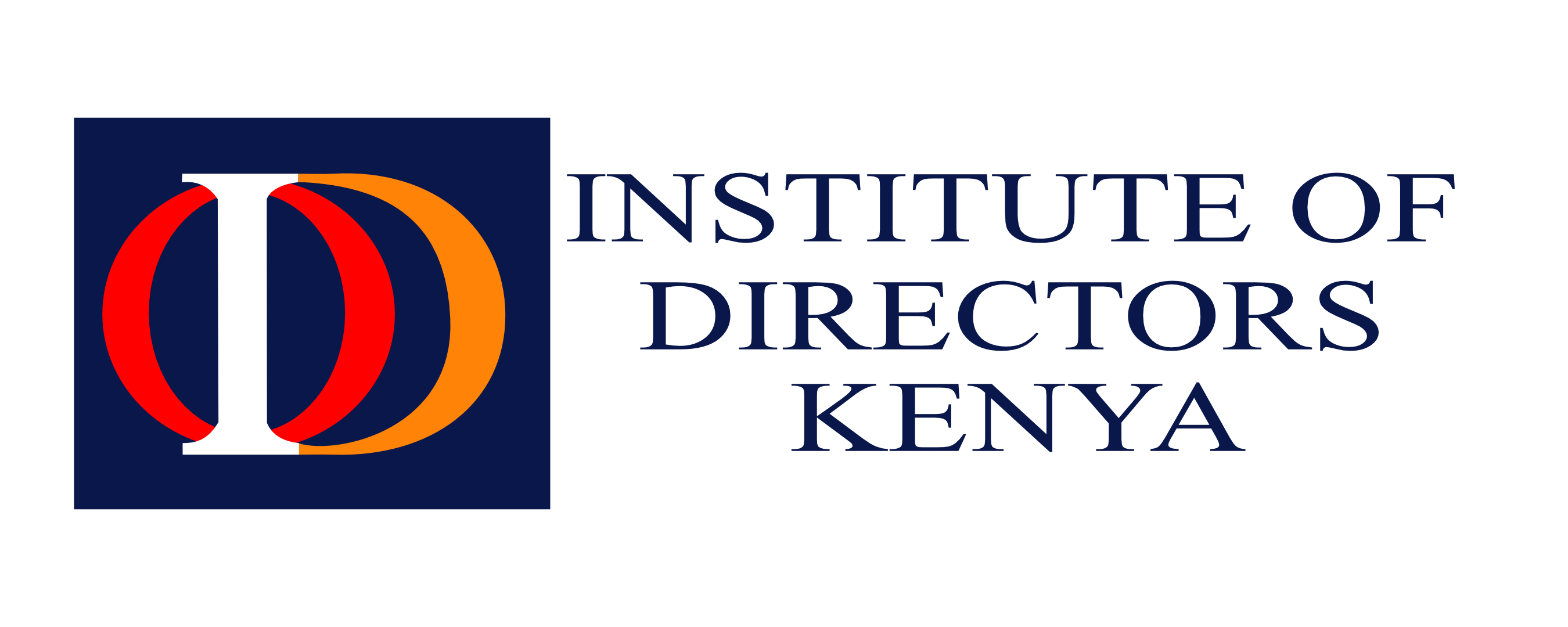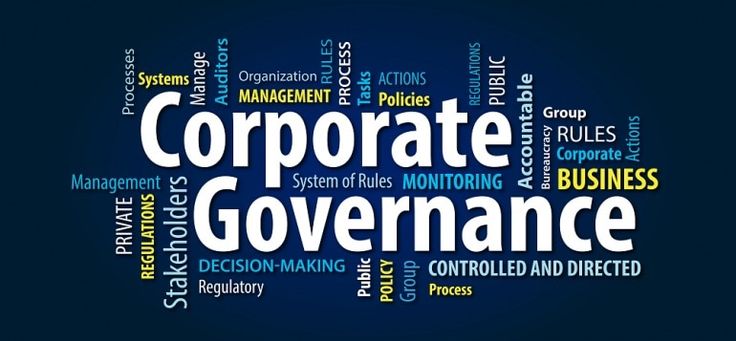Article Content
In the evolving landscape of corporate governance, one truth has become undeniable: what gets measured gets improved. Yet, despite widespread recognition of the importance of board effectiveness, many organizations still approach board evaluation as a compliance checkbox rather than a genuine opportunity for performance enhancement.This represents a significant missed opportunity. Research consistently demonstrates that organizations with highly effective boards outperform their peers across virtually every metric—from financial performance to innovation capacity to risk management. The difference between an adequate board and an excellent one can literally make the difference between organizational success and failure.
The Business Case for Board Effectiveness
Before diving into the mechanics of board evaluation, it's worth understanding why board effectiveness matters so profoundly. An effective board provides strategic clarity and direction, ensuring the organization pursues the right opportunities and allocates resources appropriately. It offers robust risk oversight, helping the organization navigate uncertainties while taking appropriate risks for growth. It ensures executive accountability, supporting leadership while maintaining independence and providing objective oversight. It also brings stakeholder perspective, representing diverse stakeholder interests and balancing sometimes competing priorities.The performance impact is measurable. Organizations with highly effective boards demonstrate 25-30% better financial performance, faster strategic adaptation to market changes, lower governance-related risk incidents, and enhanced reputation and stakeholder trust.More importantly, board effectiveness provides organizational resilience. Companies with strong boards recovered faster from the COVID-19 pandemic, navigated digital disruption more successfully, and adapted more rapidly to regulatory and market changes.
Understanding Board Effectiveness: Beyond Compliance
Many organizations confuse board activity with board effectiveness. A busy board isn't necessarily an effective board. True effectiveness requires several key elements:Strategic Focus: Effective boards spend their time on the highest-value activities—strategy, risk oversight, CEO performance, succession planning, and major decisions—rather than getting mired in operational details that management should handle.Constructive Challenge: The best boards balance support for management with appropriate challenge. They ask tough questions, surface concerns early, and ensure rigorous debate before major decisions.Quality Deliberation: Effective boards make better decisions because they ensure adequate preparation and information flow, encourage diverse perspectives and dissenting views, provide time for thoughtful discussion (not just management presentations), and reach decisions through genuine deliberation rather than rubber-stamping.Individual and Collective Performance: Board effectiveness requires both capable individual directors and effective collective functioning. The whole must be greater than the sum of the parts.Continuous Improvement: The most effective boards treat performance evaluation not as annual compliance but as ongoing commitment to improvement.
The Architecture of Board Evaluation
Comprehensive board evaluation typically encompasses three levels, each serving distinct purposes:
Individual Director Evaluation
Assessing individual director performance focuses on several critical areas: preparation and engagement (meeting attendance, preparation quality, participation level), contribution quality (value of insights, constructive challenge, expertise application), interpersonal effectiveness (collegial relationships, communication skills, emotional intelligence), and commitment (time devoted, continuous learning, role fulfillment).Individual evaluations are often the most sensitive aspect of board evaluation, requiring carefully designed processes that balance candor with collegiality.
Committee Evaluation
For boards with committees (audit, risk, nomination, remuneration), evaluating committee effectiveness is crucial. Key areas include mandate fulfillment (delivering on committee responsibilities effectively), information and expertise (committee members' qualifications and access to necessary information), process effectiveness (meeting frequency, agenda management, deliberation quality), and value addition (contribution to full board decision-making).Committee evaluation often reveals process improvements that can enhance both committee and full board effectiveness.
Full Board Evaluation
Evaluating the board as a collective body addresses composition and diversity (skills mix, experience breadth, diversity of perspectives, succession planning), structure and process (meeting effectiveness, agenda management, information flow), culture and dynamics (trust levels, openness to dissent, decision-making effectiveness), strategy oversight (strategy development, monitoring, guidance quality), and risk oversight (risk appetite clarity, risk management oversight, crisis preparedness).Full board evaluation provides the holistic view necessary for strategic board development planning.
Designing Effective Board Evaluation Processes
Creating evaluation processes that drive genuine improvement requires thoughtful design across several dimensions:
Evaluation Frequency and Timing
Different evaluation components benefit from different frequencies. Annual comprehensive evaluations (full board, committees, individuals) serve as the foundation. Biennial external evaluations bring fresh perspective and objectivity, while ongoing pulse-checks and check-ins maintain continuous awareness of emerging issues.Many boards find value in lightweight quarterly effectiveness discussions that don't require formal evaluation processes but keep improvement top of mind.
Methodology Selection
Various methodologies serve different purposes:Questionnaires and Surveys provide structured data collection and quantitative tracking over time. They work well for certain aspects of board performance but may miss nuanced issues.Individual Interviews enable deeper exploration of sensitive issues and candid feedback. They're time-intensive but often surface insights that surveys miss.Facilitated Discussions build shared understanding and collaborative problem-solving. They work particularly well for culture and dynamics issues.Peer Feedback captures individual director effectiveness through colleague perspectives. It requires psychological safety and trust to work effectively.External Assessment brings objective perspective and benchmarking against best practices. The investment pays dividends in fresh insights and credible recommendations.Most effective board evaluation processes use mixed methods, combining approaches to gain comprehensive understanding.
The Role of External Facilitation
While internal evaluation has value, periodic external facilitation offers distinct advantages: objectivity and independence (no vested interest in preserving the status quo), expertise (knowledge of best practices and common pitfalls), credibility (recommendations carry weight with directors), and confidentiality (directors may be more candid with external parties).Professional board evaluation services bring structured methodologies, benchmark data, and experienced facilitation that enhance evaluation quality significantly.
Key Success Factors
Regardless of methodology, certain factors consistently distinguish effective evaluation processes:Board Chair Leadership: The chair's commitment to evaluation and willingness to act on findings makes the single biggest difference in evaluation effectiveness.Psychological Safety: Directors must feel safe providing candid feedback without fear of relationship damage or retribution.Focus on Improvement: Framing evaluation as development opportunity rather than performance critique encourages engagement and openness.Concrete Action Planning: Translating findings into specific improvement actions with accountability ensures evaluation drives change.Follow-Through and Follow-Up: Revisiting prior year's improvement commitments and tracking progress demonstrates seriousness of purpose.
Common Board Effectiveness Challenges
Board evaluations frequently identify recurring challenges:
Board Composition Issues
Skills gaps (board lacking expertise needed for current strategic challenges), insufficient diversity (limited perspectives due to homogeneous backgrounds), succession planning failures (inadequate pipeline development), and unclear role expectations (ambiguity about director responsibilities and time commitments).Addressing composition issues requires honest assessment and, often, courageous conversations about refreshment and renewal.
Process and Structure Problems
Information overload (too much data, insufficient synthesis and insight), agenda management issues (insufficient time for strategic discussions), meeting effectiveness concerns (excessive presentations, insufficient discussion), and committee structure problems (overlapping mandates, unclear accountability).Process issues are often the easiest to address yet frequently persist due to inertia and reluctance to change established patterns.
Dynamics and Culture Challenges
Groupthink tendencies (insufficient challenge, conformity pressure), dominant voices (certain directors dominating discussions), conflict avoidance (important issues not surfaced or addressed), and trust deficits (lack of psychological safety for candid discussion).Dynamics issues are often the hardest to address but have the biggest impact on board effectiveness when resolved.
Strategic Oversight Gaps
Insufficient strategy engagement (board not meaningfully involved in strategy development), short-term focus (inadequate attention to long-term positioning), disconnect from execution (lack of line-of-sight from strategy to implementation), and limited strategic foresight (insufficient attention to emerging opportunities and threats).Strategic oversight gaps undermine the board's primary value proposition and deserve priority attention.
Translating Evaluation Findings into Improvement
The real value of board evaluation lies not in identifying issues but in driving improvement. Effective boards approach this systematically:
Prioritizing Issues
Not all evaluation findings merit immediate attention. Effective prioritization considers impact on board effectiveness, feasibility of addressing, urgency/timeliness, and resources required.Many boards make the mistake of trying to address too many issues simultaneously. Focus on the vital few rather than the trivial many.
Developing Action Plans
For priority issues, develop specific action plans including clear objectives, assigned accountability, concrete action steps, realistic timelines, and measurable success indicators.Vague commitments to "improve board culture" or "enhance strategic discussions" rarely lead to meaningful change. Specificity matters.
Implementation and Accountability
Someone—typically the board chair or governance committee—must own implementation accountability. Regular progress reviews, resource allocation for improvement activities, and willingness to course-correct as needed ensure evaluation drives real change.
Measuring Progress
Track improvement systematically through follow-up pulse-checks, annual evaluation comparison, director feedback, and tangible outcomes (better decisions, improved performance).Demonstrating progress reinforces the value of evaluation and sustains commitment to continuous improvement.
Special Topics in Board Effectiveness
Several areas deserve particular attention in board effectiveness efforts:
Virtual and Hybrid Board Meetings
The shift to virtual and hybrid meetings during COVID-19 has become permanent for many boards. This requires new effectiveness considerations including technology effectiveness and accessibility, engagement and participation quality in virtual formats, relationship building without in-person interaction, and appropriate mix of virtual and in-person meetings.Effective virtual board meetings don't just replicate in-person meetings via video—they require intentional design for the medium.
Board Diversity and Inclusion
Simply adding diverse directors doesn't automatically enhance effectiveness. True inclusion requires creating environment where diverse perspectives are valued and heard, avoiding tokenism or "onlyness" dynamics, leveraging diversity for enhanced decision-making, and addressing unconscious bias in board processes.Board evaluation should explicitly assess whether the board truly leverages its diversity or simply checks diversity boxes.
Board-Management Partnership
The quality of the board-management relationship fundamentally shapes board effectiveness. Key elements include role clarity (clear boundaries between governance and management), mutual respect (appreciating respective roles and contributions), information flow (appropriate, timely information to the board), and constructive challenge (board questioning without micromanagement).Board evaluation should assess the health of this critical relationship.
Succession Planning
Both CEO succession and board succession deserve evaluation attention. Effective succession planning includes emergency CEO succession preparedness, planned CEO succession processes, board composition planning and renewal, committee chair succession, and board chair succession planning.Succession planning failures represent some of the most costly board shortcomings.
The Role of Director Development in Board Effectiveness
Board evaluation often identifies development needs—both individual and collective. Addressing these through structured director development programs accelerates improvement significantly.Development needs commonly identified include governance knowledge and best practices, financial literacy and oversight, risk management and oversight, technology and digital transformation, ESG and sustainability governance, strategy development and oversight, and interpersonal effectiveness and board dynamics.Board leadership programs and specialized workshops provide targeted development that translates directly to enhanced effectiveness.
Building a Culture of Continuous Improvement
The most effective boards don't treat evaluation as annual compliance—they embed continuous improvement in their culture through regular effectiveness discussions, openness to feedback and learning, willingness to experiment and adapt, commitment to professional development, and periodic process innovation.This requires leadership—particularly from the board chair—and commitment from all directors to prioritize board effectiveness as worthy of their time and attention.
The IOD Kenya Approach to Board Effectiveness
At the Institute of Directors Kenya, we've supported hundreds of boards in their effectiveness journeys. Our comprehensive approach includes:Professional Board Evaluation Services: Independent, objective evaluation using proven methodologies and delivered by experienced governance professionals who understand the Kenyan context.Board Effectiveness Workshops: Targeted programs addressing common effectiveness challenges, from board dynamics to strategic oversight to risk governance.Director Development Programs: Continuous learning opportunities that build individual director capabilities critical to collective board effectiveness.Governance Advisory Services: Expert consultation on board structure, processes, and practices tailored to your organization's specific needs and challenges.Peer Learning Opportunities: Director networking events and forums where board members share challenges and best practices in confidential peer settings.Best Practice Resources: Access to governance frameworks, board charters, evaluation templates, and other tools that support board effectiveness.
Taking Action: Your Board Effectiveness Roadmap
Whether you're a board chair, director, or governance professional, here's your roadmap to enhanced board effectiveness:Immediate Assessment (Month 1):
- Conduct honest assessment of current board effectiveness
- Review when board was last comprehensively evaluated
- Identify most pressing effectiveness concerns
- Assess board's openness to evaluation and improvement
Evaluation Planning (Months 2-3):
- Design evaluation process appropriate for your board's maturity and needs
- Consider whether external facilitation would add value
- Communicate evaluation purpose and process to all directors
- Prepare evaluation instruments and schedule evaluation activities
Evaluation Execution (Months 3-4):
- Conduct evaluation using chosen methodology
- Ensure candid, comprehensive feedback
- Analyze findings and identify key themes and priorities
- Prepare evaluation report and recommendations
Action Planning (Month 5):
- Facilitate board discussion of evaluation findings
- Prioritize improvement opportunities
- Develop specific action plans with accountability and timelines
- Allocate resources for improvement initiatives
Implementation and Follow-Up (Ongoing):
- Execute improvement action plans
- Track progress regularly
- Adjust approaches as needed
- Plan follow-up evaluation to assess improvement
Your Partner in Board Excellence
Enhancing board effectiveness requires expertise, objectivity, and sustained commitment. At IOD Kenya, we bring all three to our work with boards across sectors.Our board evaluation and effectiveness services include:
- Comprehensive board, committee, and individual director evaluations
- Governance audits and health checks
- Board effectiveness workshops and facilitation
- Director development programs targeting specific capability gaps
- Ongoing governance advisory support
Whether you need:
- Independent board evaluation by experienced governance professionals
- Expert facilitation of board effectiveness discussions
- Targeted training to address capability gaps
- Governance advisory support for board development
- Access to peer learning and best practices
We invite you to explore how IOD Kenya can support your board's journey toward greater effectiveness.



